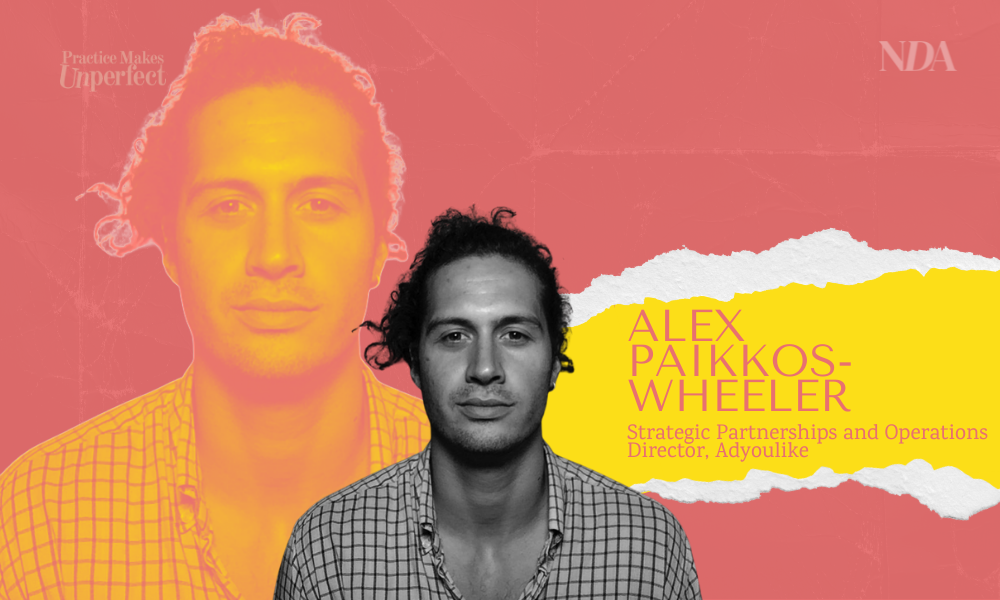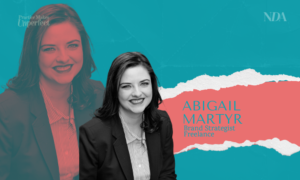By Alex Paikkos-Wheeler, Strategic Partnerships and Operations Director at ADYOULIKE
These articles have been written by the latest cohort of the Practice Makes UnPerfect programme – a course that helps people find and finesse their public voices
We are hardwired to make good decisions. We want to make good decisions. But for money, we will make bad decisions.
A research team led by UZH professor Christian Ruff found that people have a “moral preference for supporting good causes and not wanting to support harmful or bad causes. However, depending on the strength of the monetary incentive, people will at one point switch to selfish behaviour”.
As marketers, we need to understand this about ourselves and our consumers. We need to create rewards for making good decisions, disincentives for making bad decisions and capitalise on people’s instincts to be good.
History is full of examples of people making bad decisions for money. If you don’t believe me, watch a Nicholas Cage film.
The ice industry in the US held back personal refrigerators and air conditioning for 50 years. The highly lucrative sector – once employing 90,000 Americans – went to extraordinary lengths to discredit and prohibit a local Floridan Doctor from selling his invention of air conditioning. “Bigwigs”, fearing the future, lobbied aggressively and paid the mass media to slander the new air conditioning inventions. They were so successful that it wasn’t until 50 years after the invention of air conditioning that people were able to cool their homes, hospitals and food. Brands and media making bad decisions for cold hard cash.
Fast forward 100+ years and Perdue pharmaceuticals is aggressively marketing highly addictive opioids pills as a completely safe and non-addictive medicine to doctors and consumers. Lying about the safety of their medicine. The results of this 20-year campaign is the worst opioid epidemic the US has ever seen. Hundreds of thousands of people have died from overdoses whilsts millions are struggling with opioid dependency. Marketing professionals and brand executives (specifically the Sackler Family) pocketing huge sums of money for very bad decisions.
Marketers are making the same mistakes as the ice industry all over again. This time with social media.
We know that social media is spreading disinformation and political polarisation. MIT ran a study on misinformation on Twitter back in 2018, which found that “false news stories are 70 percent more likely to be retweeted than true stories are”. It also takes true stories about six times as long to reach 1,500 people as it does for false stories to reach the same number of people”.
More recently, Facebook’s own research showed that almost 1 in 3 people in a radical political Facebook group was recommended it by Facebook. These platforms are run on a business model whose growth depends on you spending as much time there as possible, and they are gaming that model with radical and false content. That content is driving people apart, starting violent altercations and fundamentally destroying our ability to share objective truths.
As marketers, we are the ones who determine that success. 34% of the digital advertising market is on social media (Statistica.com Digital Advertising Worldwide). That’s a huge sum, and it’s still growing. We can take action now to stop history repeating itself. Moreover we can shout about it, too.
Our base instinct is to make good decisions. Toluna’s ‘Understanding the 2021 Consumer’ Global Barometer Study found that “84% of those surveyed believe brands should be accountable for their actions. A significant 79% of people said that they make a special effort to buy from brands that are aligned to their personal values. Tellingly, 68% of us have stopped supporting brands that don’t align with our personal values”. So, the desire is there, albeit often well hidden. A CNN poll in November 2021 said that three out of four adults in the US think that Facebook is making the world worse. So, if we move money away from social media and tell everyone we are doing it, the research suggests they will support us.
The ice industry got away with pushing back the refrigerator. Let’s not do the same thing with quality information. We have the opportunity to learn from our past, let integrity lead us, and make the choices we inherently want to make. Unlike Nicholas Cage.









